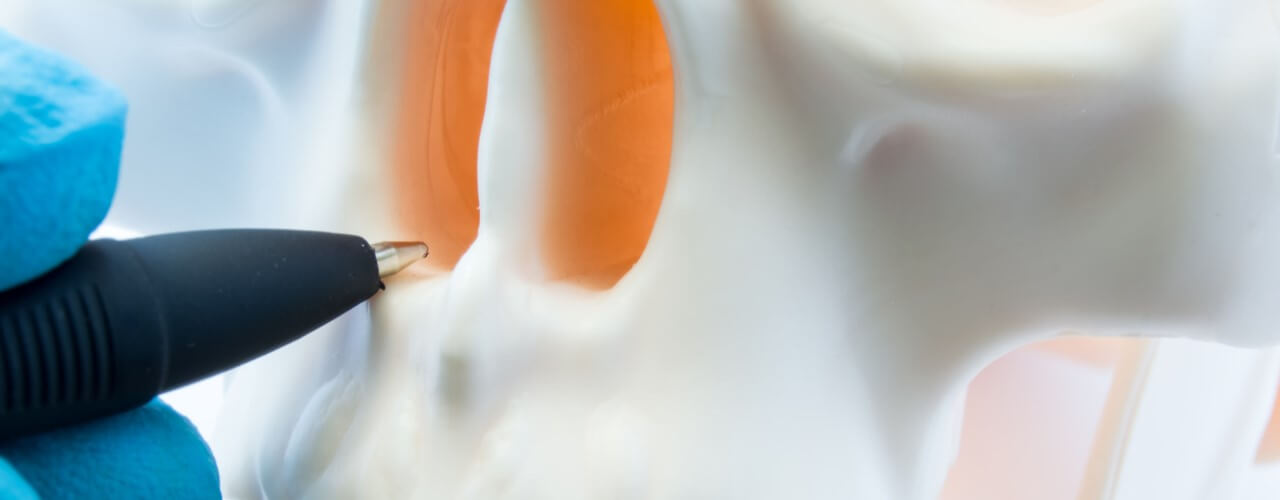Do the Benefits Outweigh the Risks for a Deviated Septum Surgery?
A deviated septum can lead to breathing difficulties, nasal congestion, and sleep disturbances. Surgery, known as septoplasty, is often recommended for severe cases to correct the septum’s alignment. While surgery offers many benefits, it also comes with risks. In this article we’ll help consider the pros and cons of deviated septum surgery so that you can make a well informed decision.
What is a Deviated Septum?
The septum is the cartilage that divides the nasal cavity. In cases where the septum is crooked, it can obstruct airflow, causing various issues such as difficulty breathing through one or both nostrils, frequent sinus infections and nosebleeds. Some individuals are born with a deviated septum, while others may develop one due to injury. Septoplasty is the primary corrective surgery for this condition.
Benefits of Deviated Septum Surgery
1. Improved Breathing
One of the most notable benefits is enhanced nasal airflow, allowing patients to breathe easier. This improvement can be life-changing for those who experience chronic nasal obstruction.
2. Better Sleep Quality
Breathing problems often contribute to sleep disorders such as sleep apnoea. Correcting the septum can significantly improve sleep quality by eliminating blockages that interfere with breathing during the night.
3. Reduced Sinus Infections
A crooked septum can block drainage pathways, leading to chronic sinusitis. Many patients report a reduction in the frequency of sinus infections post-surgery.
4. Aesthetic Improvement
In some cases, a deviated septum can cause visible nasal deformity. While septoplasty focuses on function, it can also result in a more symmetrical appearance, especially when combined with a rhinoplasty.
5. Long-Term Relief
For those who have struggled with nasal blockages for years, septoplasty offers long-lasting results, freeing them from the need for constant medication or other temporary treatments.
Risks of Septoplasty
While the benefits can be significant, like any surgical procedure, deviated septum surgery comes with risks:
1. Infection
As with any surgery, there is a risk of infection, though this is generally low. Proper post-operative care can reduce this risk significantly.
2. Bleeding
Nosebleeds are a common side effect post-surgery, though they typically resolve within a few weeks. In rare cases, excessive bleeding may require additional medical attention.
3. Scarring
Although septoplasty is performed internally, scarring within the nose may occur. This scarring can lead to adhesions that might obstruct airflow, potentially requiring further treatment.
4. Persistent Symptoms
Some patients may continue to experience breathing issues or nasal congestion even after surgery. This can occur if the deviation was not fully corrected or due to other underlying nasal conditions.
5. Change in Nasal Shape
While not common, septoplasty can occasionally alter the shape of the nose. Patients concerned about this may opt for a septorhinoplasty to address both functional and cosmetic concerns simultaneously.
Weighing the Benefits and Risks
For most patients, the benefits of a deviated septum surgery outweigh the risks, particularly for those who suffer from chronic breathing problems, sinus infections, or poor sleep quality. However, it’s crucial to discuss all potential outcomes with a qualified ENT specialist to determine if surgery is the best option.
Is Surgery Right for You?
Septoplasty is not always the first step in treating a deviated septum. Some patients manage symptoms through non-surgical treatments such as nasal sprays or breathing strips. However, when these options fail, surgery can provide lasting relief.
Patients considering surgery should be fully informed of both the benefits and risks. Consulting with an ENT specialist can help determine the most appropriate course of action based on individual needs.
What to Expect During and After Surgery
The surgery typically takes between 60 to 90 minutes and is performed under general anaesthesia. Most patients can go home the same day. Post-surgery, you may experience swelling, mild pain, and some nasal congestion, but these symptoms usually subside within a week or two.
Full recovery may take several weeks, during which time activities that could strain the nose, such as heavy lifting or contact sports, should be avoided. Follow-up appointments will ensure that the septum heals properly and that any complications are addressed.
Final Thoughts
Deviated septum surgery can dramatically improve quality of life for those suffering from chronic nasal obstructions. While there are risks, they are generally minimal when performed by an experienced ENT specialist. If you're struggling with nasal blockage, persistent sinus infections, or sleep issues, contact Harley Street ENT Clinic today to discuss whether septoplasty might be the right solution for you.
Frequently Asked Questions (FAQs):
How can I tell if my symptoms are severe enough to consider deviated septum surgery?
If you're experiencing persistent nasal obstruction, frequent sinus infections, difficulty breathing through one or both nostrils, or sleep disturbances, it may be worth discussing surgery with a specialist. A detailed evaluation will help determine if surgery is necessary.
What are the possible long-term effects or complications following septoplasty?
Long-term complications are rare but may include persistent nasal obstruction, changes in nasal shape, or scarring that affects airflow. Follow-up care helps manage these risks.
Can septoplasty also improve the cosmetic appearance of my nose, or would I need an additional procedure like rhinoplasty?
Septoplasty primarily focuses on improving function, but it may result in minor aesthetic changes. For more significant cosmetic improvements, rhinoplasty can be combined with septoplasty.











